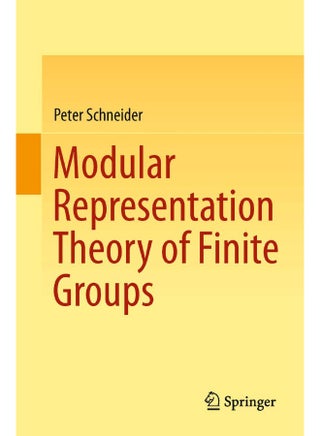| Book Description | Representation theory studies maps from groups into the general linear group of a finite-dimensional vector space. For finite groups the theory comes in two distinct flavours. In the 'semisimple case' (for example over the field of complex numbers) one can use character theory to completely understand the representations. This by far is not sufficient when the characteristic of the field divides the order of the group.Modular Representation Theory of finite Groups comprises this second situation. Many additional tools are needed for this case. To mention some, there is the systematic use of Grothendieck groups leading to the Cartan matrix and the decomposition matrix of the group as well as Green's direct analysis of indecomposable representations. There is also the strategy of writing the category of all representations as the direct product of certain subcategories, the so-called 'blocks' of the group. Brauer's work then establishes correspondences between the blocks of the original group and blocks of certain subgroups the philosophy being that one is thereby reduced to a simpler situation. In particular, one can measure how nonsemisimple a category a block is by the size and structure of its so-called 'defect group'. All these concepts are made explicit for the example of the special linear group of two-by-two matrices over a finite prime field.Although the presentation is strongly biased towards the module theoretic point of view an attempt is made to strike a certain balance by also showing the reader the group theoretic approach. In particular, in the case of defect groups a detailed proof of the equivalence of the two approaches is given. This book aims to familiarize students at the masters level with the basic results, tools, and techniques of a beautiful and important algebraic theory. Some basic algebra together with the semisimple case are assumed to be known, although all facts to be used are restated (without proofs) in the text. Otherwise the book is entirely self-contained. |
Free & Easy Returns
Best Deals




